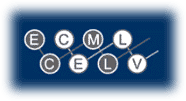
OPTIMA
THE BULGARIAN ASSOCIATION OF
QUALITY LANGUAGE SERVICES
Galya Mateva

![]()
AIMS
Optima aims to promote and guarantee quality in Bulgarian institutions
teaching foreign languages for the benefit of students and staff. It also
aims to support the overall activities and defend the interests of its
member schools. Ultimately, it is committed to continually improve the
standards of FLT in full compliance with the European norms.
HISTORY
OPTIMA is a textbook example of Pan-European cooperation. The first "Why
don`t you do it" impetus came from QUEST Romania in early 1998. Later
in the same year the ECML workshop on "The Concept of Quality in
Language Teaching" turned out to be a corner-stone event which indicated
the concrete steps towards the establishment of a national association.
The idea of creating a self-financing institution for quality control
in the language sector was fully supported by the British Council, Bulgaria
and gradually integrated into a project called "Quality in Language
Education" and later on in another one under the name of "Professional
Organisations".
In January 1999 a meeting in Sofia gathered prospective candidates with
the purpose of spelling out the project idea, tapping the local resources
and uniting the efforts of well-established language schools in the country.
Later on, a seminar in June led by Maria Matheidesz from Hungary and another
one in October led by Frank Heyworth from EAQUALS and Laura Muresan from
Romania helped to start intensive work on Optima`s Constitution, Accreditation
and Inspection Scheme. The first seminar was sponsored by the British
Council whereas the second one was a result of a successful ELTeCS bid
cofinanced by the British Council and the ECML.
As a result of these activities the Bulgarian Association of Quality Language
Services was formally established in April, 2000. In June the same year
a seminar run by Ludka Kotarska from PASE, Poland, presented the Polish
experience in organising and conducting school inspections. It helped
us work out the Inspection Procedure and draft the Guidelines for Schools
and Inspectors. By the end of the year, once again with the support of
Laura Muresan, we were able to carry out the first mock inspections in
Sofia and improve our documents. The periods between all seminars were
characterised by an even distribution of functions and responsibilities
among Optima`s members, by well-synchronised and productive group work.
After a relatively short but thorough period of preparation the real inspections
are currently under way and the majority of founder members (all those
who applied) have already received accreditation.
Meanwhile another successful ELTeCS bid called "Quality Control across
the Borders of Eastern Europe" created excellent opportunities to
exchange inspectors with Romania, Croatia and Serbia, and carry out joint
inspections in these countries. Four of the Bulgarian schools were inspected
and accredited by international teams of inspectors. These inspections
served the dual purpose of making the inspection process more transparent
and credible and at the same time of intensively exchanging local expertise.
ORGANISATIONAL STRUCTURE
A Committee of 7 members elected by the General Assembly runs Optima.
Each member has clearly defined responsibilities in the areas of inspection
and accreditation, staff training, marketing, finance, electronic communications,
liaising with other organisations and, finally, general management.
The other governing bodies are the Inspection Committee (consisting of
3 members), and the Supervisory Committee (also consisting of 3 members).
Optima`s Chair is elected every two years by the General Assembly.
MEMBERSHIP
The group of founder members of OPTIMA represents 7 language centres,
schools and school chains as well as 4 regional university associations
all over the country. In 2001 five new schools joined the Association,
with some more in the pipeline. According to Optima`s regulations, each
school is obliged to apply and pass the inspection within a period of
two years, and only accredited schools can retain membership.
THE INSPECTION AND ACCREDITATION PROCESS
The inspection of a school is carried out every three years. Prior
to that all candidate schools are provided with an application form, a
pre-inspection questionnaire and are also invited to attend training events.
The Accreditation Handbook supplies a detailed account of all documents
that have to be submitted 3 weeks before the inspection. Each inspection
is conducted by two inspectors - one internal (a representative of one
of Optima`s schools) and one external (a foreign inspector or a local
expert).
The inspection lasts for one or two days and depends on the school size.
The fees vary accordingly. After the inspection the two inspectors submit
their report to the Inspection Committee for endorsement.
INSPECTION CRITERIA AND GRADING
The main areas of inspection are Management, Academic Management,
Standards of Teaching and, finally, General. In
order to pass, a school has to score 69 out of 100 points. Management
carries 20 points (pass mark 14), Academic Management 24 points (pass
mark 17), Standards of Teaching 38 points (pass mark 26) and General 18
points (pass mark 12).
The inspectors apply a three-point grading scale whereas 0 is fail, 1
is pass and 2 is excellent. In order to pass, a school has to show at
least 5 marks of excellence in management and 5 marks of excellence in
teaching. A school is denied accreditation in case it does not reach the
pass mark or is referred in any of the categories and then re-inspected
within a fixed period of time.
THE INSPECTORS
All inspectors undergo an intensive training programme of at least 60
hours. After that they join different retraining events organised by Optima.
The programme consists of a theoretical component as well as a practical
component, which includes mock inspections and case studies.
The inspectors come from accredited schools or are independent experts.
Ideally, one local (internal or external) and one foreign inspector form
the team of inspectors.
The inspectors are fully qualified and experienced foreign language teachers
with managerial skills. Experience in teacher training and mastery of
more than one foreign language are additional assets.
WEB SITE: www.baqls-optima.bg
